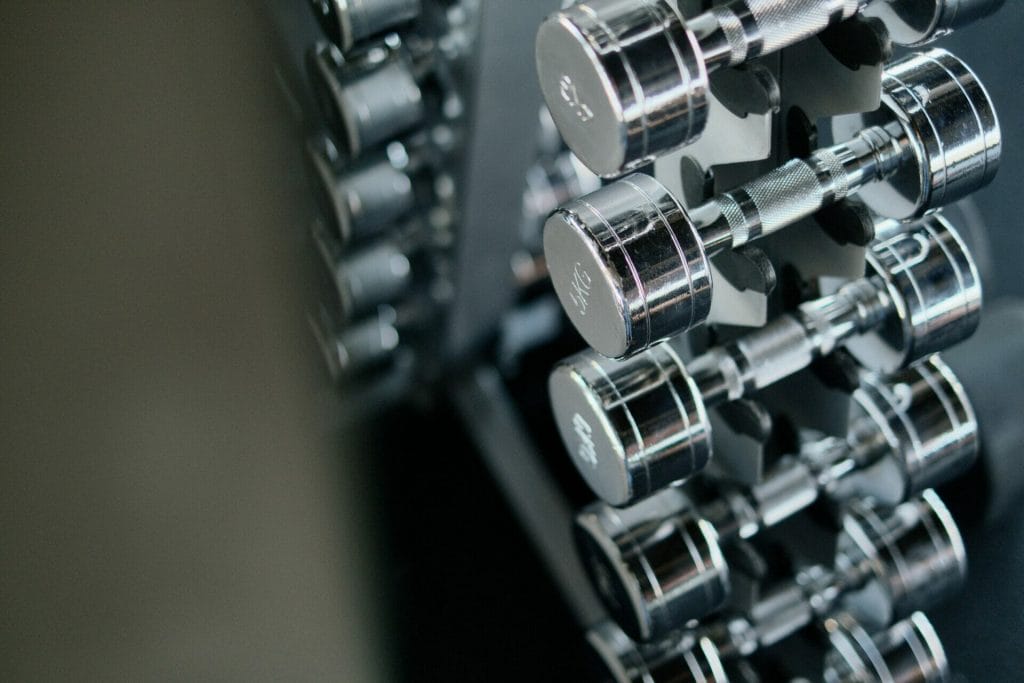How to build muscle – As a health professional I see a lot of people who want and need to lose weight but also a lot of people who want to put on weight. More specifically they want to build more muscle.
There are so many scams out there and myths about gaining weight.
I want to give you an easy to follow and simple guide, including a free recovery guide to really make the most of your training sessions.
Here is a guide full of tips, advice and training tools on how to put on muscle.
These easy and realistic tips have been developed by a professional Physiotherapist to help you reach your goal.
Three Pronged Approach to Building Muscle
To safely and effectively gain muscle you need to cover a few important aspects:
- Nutrition
- Workout / Muscle Overload
- Rest and Recovery
If you just start drinking protein shakes or eating a plethora of steaks, you won’t get very far.
If you start lifting weights but don’t challenge your muscles enough, you won’t get far.
If you don’t give your body time to get stronger, you will fall to pieces.
Below, I will cover these three important aspects so that YOU can get bigger stronger and feel a lot better.
1. Nutrition:
Before and During Your Workout
A huge amount of people are dehydrated before they even start exercising. This is because thirst (e.g. dry mouth etc.) are signs that it is too late.
You should not reach this point as it limits your muscles, causes cramps earlier, and you reaction time slows.
Over the day women should drink 1.6 litres and men should consume 2 litres of water. Although if doing exercise, hot weather etc. you should be drinking more.
A general guideline is to drink 500ml, 1-2 hours before training, 200ml every quarter-hour of exercise and 500mls of water or sports drink after exercise.
After Workout
Protein, carbohydrates and water are needed post workout. Check out the ideal recovery schedule below for more detail.
Muscle growth post workout depends a large amount on the availability of amino acids as these are the building blocks that create muscle.
Amino acids are what make up protein and so without a good dietary intake – all your hard work would be for little.
A Word on Protein:
You need to take in enough protein to support muscle growth. Your body can’t take on more than 30 grams of protein at one time so it is pointless taking more than that.
It is recommended to consume 1.4 grams of protein per kg of body weight per day so you will need to spread it out through-out the day.
Sources of Protein:
- Red Meat
- Poultry
- Fish
- Dairy
- Eggs
- Nuts
 General Nutrition
General Nutrition
It is important to eat a healthy diet day in, day out as this gives you the energy, nutrients and all the building blocks that are needed.
Tip: Increase overall daily intake. If you want to put on more muscle and train more, you need to eat more, plain and simple.
Foods to Avoid
Sugar –
Avoid sugar unless it is after exercise. Sugar causes a spike in insulin levels, increasing the muscle’s intake of sugar with amino acids for growth.
At other times it will go straight into fat.
Conclusion: Avoid sugar except after workout, then you can have 40-100 grams.
Trans Fat –
Stay well away from Trans fat. Just 5 grams of trans fats can increase your chance of heart disease by 25%.
Generally things like canned foods, potato chips, pies, deep-fried chips and fried chicken all have over 5 grams.
The easiest thing to do is check the nutritional info on the packet!
Don’t be Scared of Fat:
Other fats are needed in a healthy diet.
30% of our calorie intake should be from fat with roughly 10% saturated fat, 10% monounsaturated fat and 10% from omega 3 fats.
Sports Drinks:
Avoid any kind of sport drink, unless it is during or post workout.
Window of Opportunity:
The hour after exercise is when your body can take on fuel and re-load the best.
It is very important to eat and drink within an hour (ideally within 1/2 an hour).
The Ideal Recovery Guideline:
- First 5 minutes – Re-hydrate and refuel. Eat/Drink carbs and protein (4:1 carbs to protein ratio) using high GI Carbs. e.g. recovery sports drink, banana and water.
- 5-20 minutes – Cool down, light exercise for 5-10 minutes and stretching for 5-10 minutes.
- 15-20mins – Natural recovery – hot/cold showers, ice, foam rollers, continue to hydrate.
- Within the first hour – Continue hydration, take in more food (High and med GI carbs and proteins – a meal, protein shake etc).
- A few hours later – Continue to hydrate and refuel where appropriate. Apply a curfew, lights off etc. to get a good sleep.
2. Workout:
Train to Failure
In order for your muscles to grow, get bigger and stronger they need to be challenged.
Our body continually adapts to the forces that it is subjected to.
If you push your muscles enough that you cannot do anymore reps after a set of 8-12 reps, they will adapt and get stronger!
Muscle Recovery:
Your muscles need 48-72 hours to fully recover after a workout .
You have done a lot of little tears, they need time to heal and get stronger.
This is why you need to have at least one rest day per week to allow the muscles to heal and adapt.
Note: If you find that you have sore muscle the day after, It might mean your muscle have been working hard and will heal stronger. Check out this resource to get more information about DOMS (Delayed Onset Muscle Soreness).
A warm up and cool down is essential to decrease DOMS and to help your body recover faster and stronger.
Work Your Whole Body!
It is best to do a work out that incorporates your entire body and not just one muscle group such as chest or quads.
Working on just chest or triceps etc. is not functional at all.
It is only useful for bodybuilding, professional weight lifting etc. as we very rarely actually isolate and use one muscle group in real life.
How much should you push yourself?
To gain muscle you will need to really push the muscles.
It is also best to use free weights and body weight exercises as these engage your stabilizing muscles and are a lot more functional than weights machines.
Sets and Reps: 3 sets of 8-12 repetitions.
Stretching:
- Before Workout: Dynamic stretching – this is best as it functionally lengthens the muscles while, warming them up and increasing muscle activation.
- After Workout: Static stretching can be done here and is great for recovery.
3. Rest and Recovery:
You need to have 1 rest day per week for your muscles to recover and grow, otherwise you will start falling to pieces.
Make sure to get enough sleep and decrease stress as much as possible.
Remember that rest does not mean, sleep all day, play video games etc. It means take it easy, you can take a walk, jog, or go for a bike ride etc.
Conclusion on How to Build Muscle:
You need to do resistance training that really tests your muscles.
Have a good nutritional intake that allows your muscles to grow.
Finally, give the body a rest so that it can recover.
You might also be interested in:
Please Share, Like, Comment and any questions are welcome!


